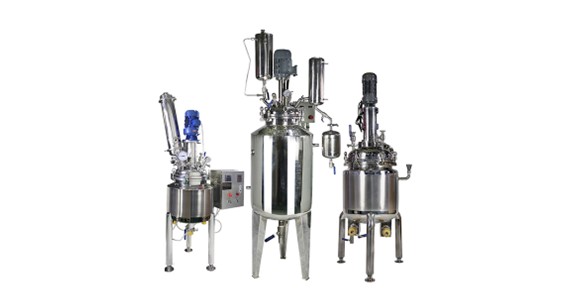What is stainless steel reactor?
Stainless steel reactors are a type of vessel or container designed for carrying out chemical reactions, often in an industrial or laboratory setting. It is constructed primarily using stainless steel due to its excellent corrosion resistance, durability, and ability to withstand high temperatures and pressures.
Features of a stainless steel reactor
Material: The main body of the reactor is made from stainless steel, which is an alloy primarily composed of iron, chromium, and sometimes other elements like nickel and molybdenum. The specific grade of stainless steel used depends on the nature of the reactions, temperature, pressure, and corrosive properties of the substances being processed.Click to get latest stainless steel reactor price.
Corrosion Resistance: Stainless steel’s resistance to corrosion ensures that the reactor can handle a wide range of chemicals without deteriorating or contaminating the reactions.
Strength and Durability: Stainless steel provides the necessary strength and durability to withstand internal pressures and stresses generated during reactions.
Temperature and Pressure Control: Stainless steel reactors can be designed to handle reactions that require varying temperature and pressure conditions. They can be equipped with systems to control and maintain these parameters within the desired range.
Mixing and Agitation: Many reactors are equipped with agitators, impellers, or mixing systems to ensure uniform mixing of reactants and efficient heat transfer.
Safety Features: Stainless steel reactors can have safety features like pressure relief valves, temperature sensors, and control systems to prevent overpressure and overheating.
Accessories: Reactors can be equipped with various accessories such as nozzles, ports, sampling systems, instrumentation, and sight glasses for monitoring and controlling the reactions.
Application of stainless steel reactor
Chemical Manufacturing: Stainless steel reactors are extensively used in the production of chemicals and chemical intermediates. They are employed for processes like synthesis, polymerization, esterification, and condensation reactions.
Pharmaceuticals: In pharmaceutical manufacturing, stainless steel reactors play a crucial role in producing drugs, pharmaceutical intermediates, and active pharmaceutical ingredients (APIs). They ensure the controlled and sterile environment required for pharmaceutical processes.
Petrochemicals: In the petrochemical industry, stainless steel reactors are used for processes like cracking, alkylation, hydrogenation, and reforming. These processes are essential for producing various petrochemical products and fuels.
Food and Beverage Industry: Stainless steel reactors are used in the food and beverage industry for processes like fermentation, extraction, and pasteurization. They provide a hygienic environment and corrosion resistance needed for handling food-grade materials.
Cosmetics and Personal Care: For the production of cosmetics, lotions, creams, and other personal care products, stainless steel reactors are used to ensure product quality, consistency, and adherence to safety standards.
Adhesives and Coatings: Stainless steel reactors are used in the production of adhesives, coatings, and sealants. These processes often involve mixing and reacting various chemical components to achieve the desired properties.
Chemical Research and Development: Laboratories use stainless steel reactors to conduct research, develop new chemical processes, and test reactions at a smaller scale before scaling up for industrial production.
Environmental Applications: Stainless steel reactors can be employed in environmental processes like water treatment, waste treatment, and air pollution control, where chemical reactions are used to neutralize or remove pollutants.
Specialty Chemicals: The production of specialty chemicals, such as high-performance materials, specialty polymers, and fine chemicals, often requires stainless steel reactors to ensure precise control over reaction conditions.
Biochemical Processes: Stainless steel reactors are used in biotechnology and biochemical industries for processes like fermentation, enzyme production, and cell culture.
Renewable Energy: In industries related to renewable energy, stainless steel reactors might be used in processes involving biodiesel production, bioethanol production, and other sustainable energy-related reactions.
Materials Science: Stainless steel reactors are used in materials science research to synthesize and study new materials, compounds, and composites.






